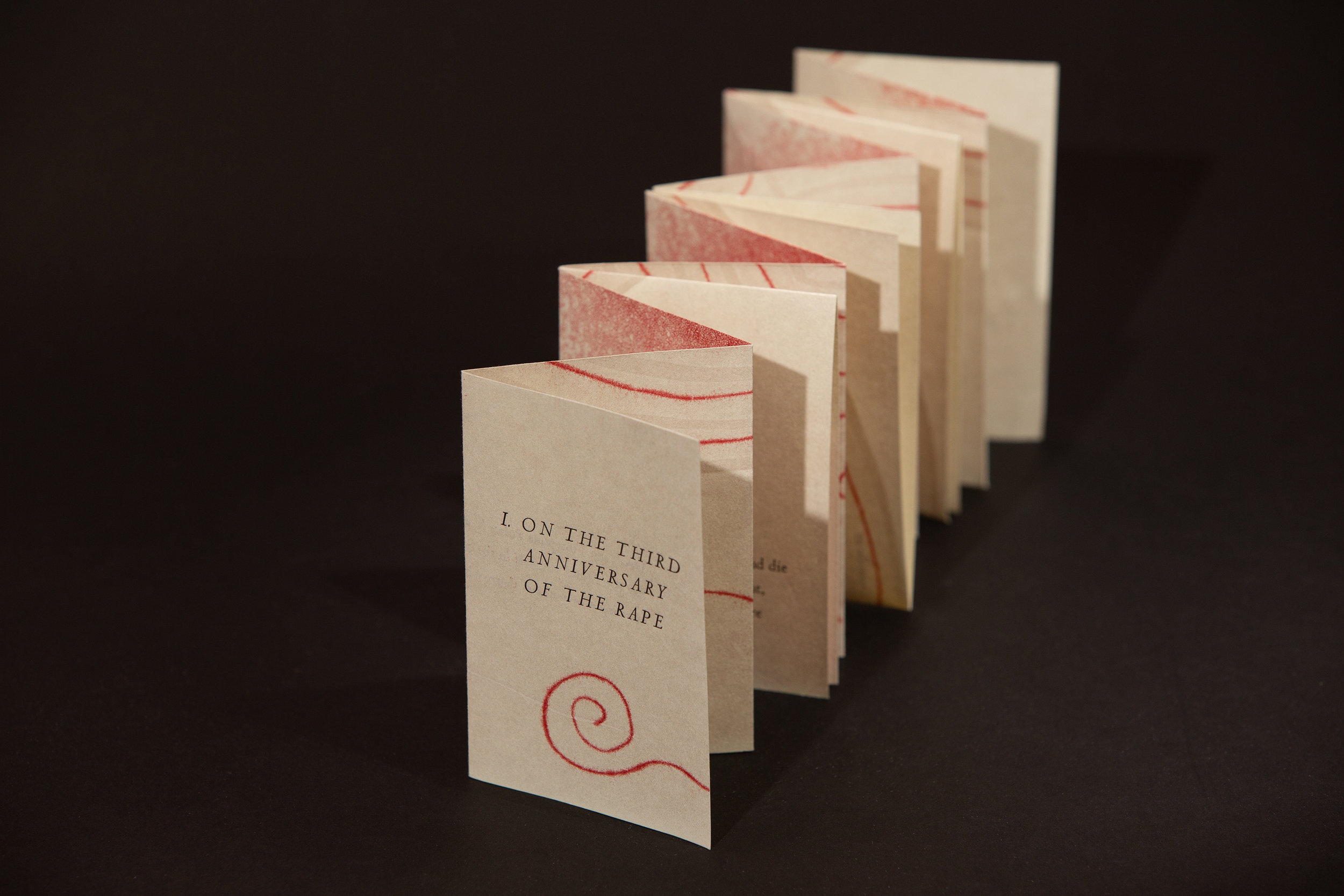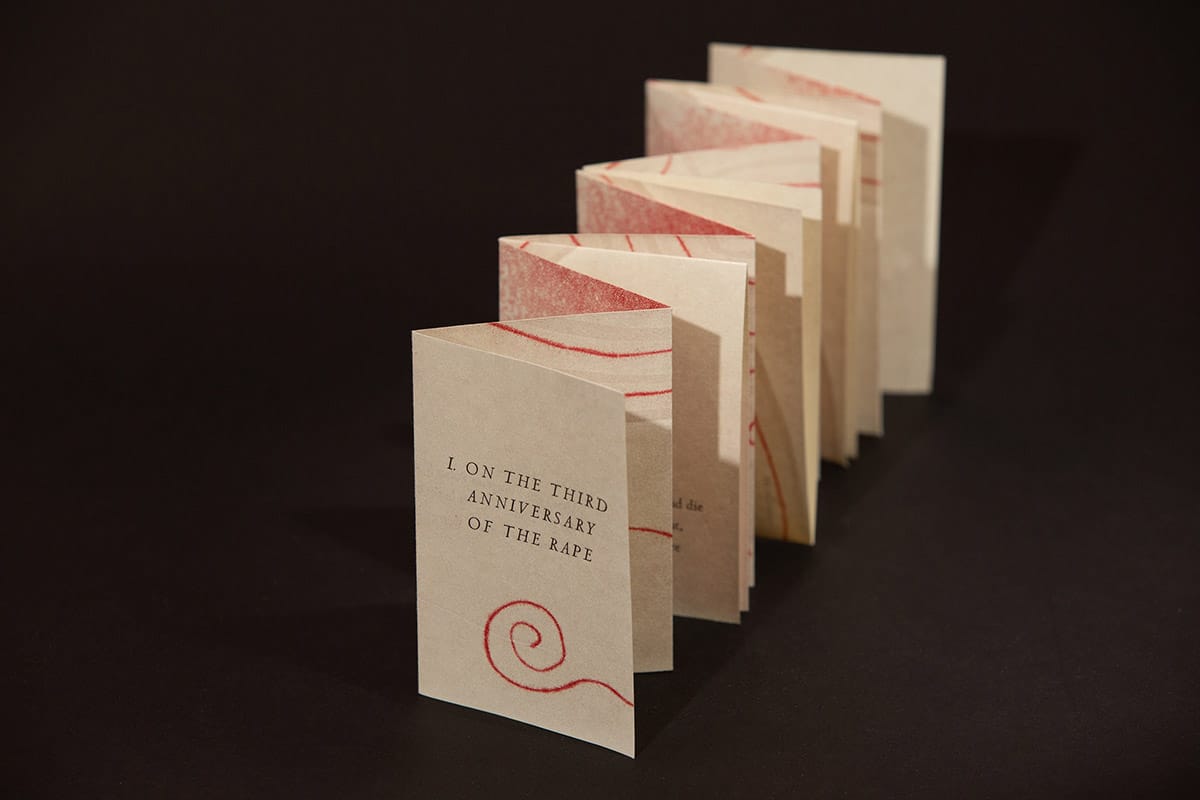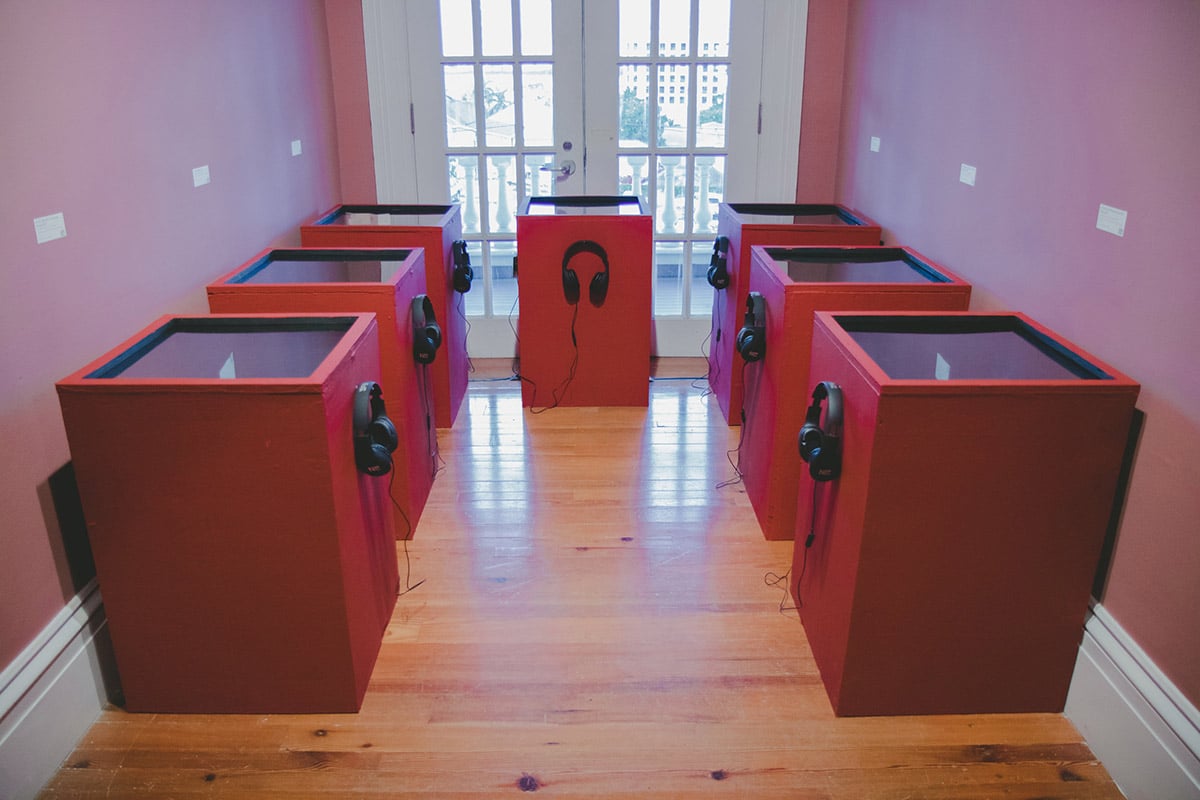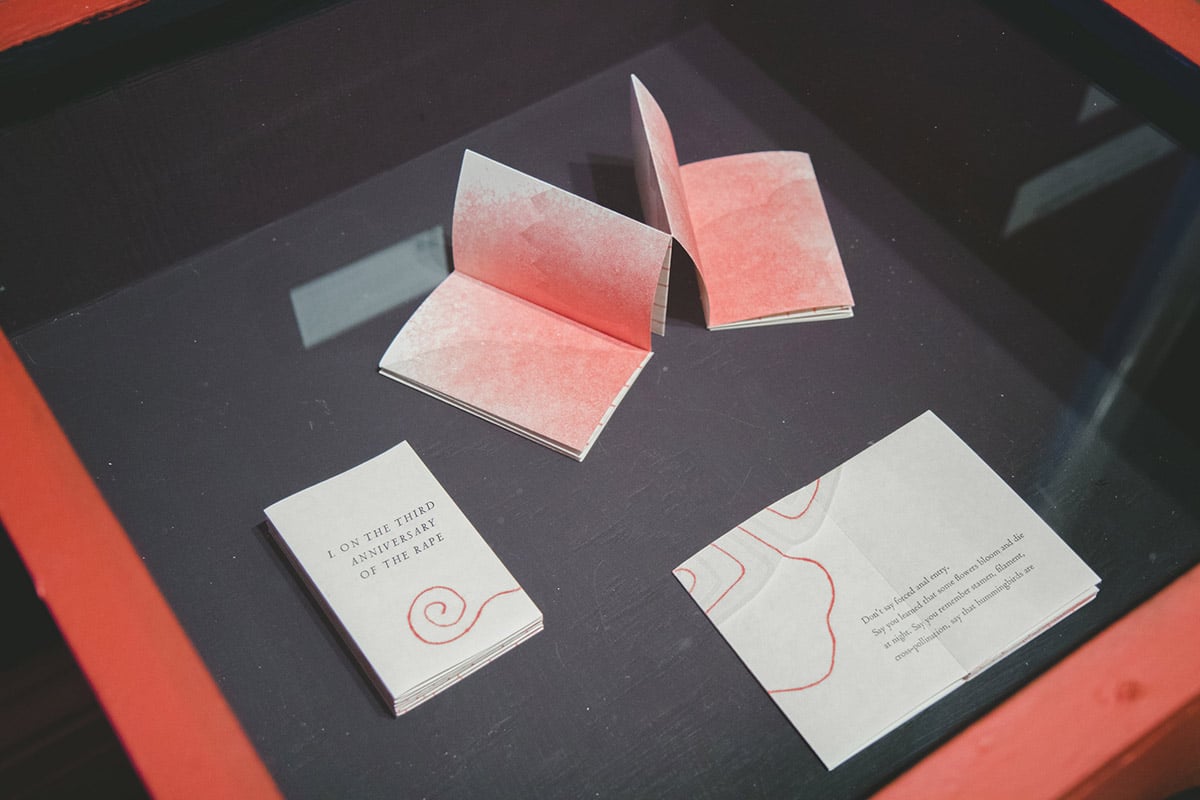The Grave Silence: Sonia Farmer and Shivanee Ramlochan give voice to victims of rape in The Caribbean

By Natalie Willis
“The second time, you know what to call it.
You have a whistle; you’re not so foolish that you don’t know what to blow down on
when things like this come knocking.
No one’s cut the grass at the community center for seven months, and you have razor
shins you can’t explain to your grandmother.”
– Shivanee Ramlochan, “The Red Thread Cycle”
The issue of rape, and subsequently its deafening silence, is a shocking social disservice in this country, and it is something we should be using our voices to ask many, many questions about. With a failed gender equality referendum, and marital rape still being legal, it is hardly surprising that the statistics for sexual assault in The Bahamas continue to rise. Read between the lines of the statistics and there’s still not enough room for the 60%+ unreported sexual assaults, let alone the “pick-up” lines (see: street harassment) that feeds into gender-based violence. The statistics for the rape of men are even less likely to show the severity of the situation. The sexual violence against women, children, and men, in addition to the commonplace armed robbery and assault, we are left with a labyrinth of heartache and bloodshed that is difficult to find our way out of.

“The Red Thread Cycle” (2018), Shivanee Ramlochan + Sonia Farmer, letterpress-printed books with recorded reading (Edition of 20), dimensions variable. Collection of the artists. Image courtesy of Dominic Duncombe.
Trinidadian poet Shivanee Ramlochan, gives us “The Red Thread Cycle” in word, which Bahamian author and book artist Sonia Farmer lays down in handset letters on paper, following a visceral, gruesome, unapologetic honesty towards the individual and collective horror and tragedy of sexual violence women, in particular, face in the region. Comprising part of Ramlochan’s collection of poetry, “Everyone Knows I Am A Haunting” (published in 2017 by Peepal Tree Press), this particular series of poems follows a seven-part account of a woman’s rape – or perhaps more heartbreaking still, multiple voices of victims – in Trinidad. Giving a nod to the Greek mythology of Theseus facing the Minotaur, guided through a treacherous labyrinth by Ariadne’s red thread–the goddess of labyrinths, mazes, fertility, wine, and passion–to secure his journey home, Ramlochan’s thread is red with blood, and not the blood of a cisgendered woman’s fertility but instead of violence.
Farmer expertly takes Ramlochan’s mental imagery and the unnerving and sickening verse into discomforting visuals on the page. Folds of handset letter-pressed type on paper give glimpses, almost vicariously, into the story as the revolting details unravel before us. Not all the text can be seen however, cleverly giving way for Ramlochan’s voice to speak directly to us via headset as we look into the cabinets of awful curiosities.

“The Red Thread Cycle” (2018), Shivanee Ramlochan + Sonia Farmer, letterpress-printed books with recorded reading (Edition of 20), dimensions variable. Collection of the artists. Installation images courtesy of Jackson Petit and the NAGB.
The matter cannot be swept under the rug, there is simply no rug big enough, and the silence is telling not just of the value of women (and the lack thereof with the second-rate citizenship and lack of rights), but also of the fact so many women feel they cannot speak up – for fear, shame, for any myriad of reasons. Black Feminist author Roxane Gay writes at length on the topic in “Not That Bad: Dispatches from Rape Culture” (2018), speaking of her own experience and giving voice to those of us–especially considering the recent events around the stories of women of colour–being silenced as well as our allied white women who have considerably more privilege, highlighting further the way that the patriarchy painfully trumps all.
Gay shares: “Because your mothers, sisters, and daughters are routinely second-guessed, blown off, discredited, denigrated, besmirched, belittled, patronized, mocked, shamed, gaslit, insulted, bullied, harassed, threatened, punished, propositioned, and groped, and challenged on what they say. Because when a woman challenges a man, then the facts are automatically in dispute, as is the speaker, and the speaker’s license to speak.” If your voice is continually questioned, or overshadowed, your “credibility” facing off against another’s privilege as it is in Ramlochan’s poetry, it is not unbelievable that so few victims are able to come forward.
This red thread leads us straight to the red stain on our dirty laundry at home. In a 2016 report on gender-based violence, The Bahamas was among the top nations for highest incidence of reported rape. The stomach clenching truth here is that this is only for reported rapes which are the tip of the iceberg. The region at large was equally disconcerting. The National Task Force for Gender Based Violence report shared: “The Bahamas has the highest incidence of rape per capita in the Caribbean. The UN Woman narrative on gender-based violence in the Caribbean cites ‘while the worldwide average for rape was 15 per 100,000, The Bahamas has an average of 133, St Vincent and the Grenadines 112, Jamaica 51, Dominica 34, Barbados 25 and Trinidad and Tobago 18.” It was also suggested nearly half of teenage girls’ first sexual experience was forced or coerced. When we think of the conversations and intimate moments women share with each other, if they can begin to speak these atrocities out loud, it is not surprising to understand that this is seen as normalised behavior and how we are socialised. It is prevalent and widespread, but it is not and cannot be made normal. It is, however, something being dealt with whether it be a fresh wound or a painful healing every day by women the world over.

“The Red Thread Cycle” (2018), Shivanee Ramlochan + Sonia Farmer, letterpress-printed books with recorded reading (Edition of 20), dimensions variable. Collection of the artists. Installation images courtesy of Jackson Petit and the NAGB.
As the title of the start of the series, “I. On the Third Anniversary of the Rape”, suggests, it is something that even time cannot seem to rid us of, it is an unforgivable, irrevocable moment and the weight of it is something to be considered in how we handle this crisis on a personal, community, and state level. “It is more like carrying something really heavy, forever. You do not get to put it down: you have to carry it, and so you carry it the way you need to, however it fits best.” (Gay, 2018). So many of our women, men and children are carrying that weight, it’s no wonder we find ourselves sinking. We cannot merely yank on thread and follow it to find a way out, we must get rid of the beast at its root. This ridding begs for a cultural shift in how we raise our boys and children, and a new kind of work in our homes, churches, corner stores, community centers and most importantly at the legislative state level. Without it, we are like the pages of Farmer and Ramlochan’s collaboration – bloodied, doubled over, veiled and unable to tell our full story. There is no heroic ending here, it is not about glory, it is about ghosts and the haunted walking among us. It is about pulling them back to life and to keep ourselves from slipping, out of cultural life blood that makes our region still one of great possibility. It is about standing firm within our basic human dignity and security and acknowledging the blood, flesh, tears and humanity of the people around us–family and otherwise.
“The Red Thread Cycle” (2018), a collaborative work with Sonia Farmer presenting the poetry of Trinidadian author Shivanee Ramlochan, will be on view at the NAGB as part of the 9th National Exhibition, “NE9: The Fruit and The Seed” through April 7th.